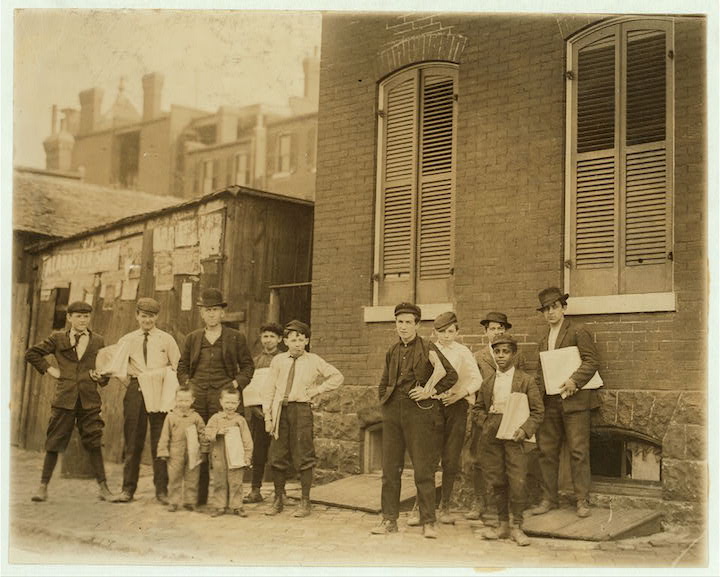The Gospels are called “good news.” Something was found in them that was “new,” never heard before. It was good, not bad, news. “Bad” news certainly happened, but only if the opposite “good” news was possible. Otherwise, there would just be “news”: News would be something like reading facts on Google. “News” arouses our passions. Something is at stake in its very statement.
“Bad news” has been with the human race since its beginning. No past time or place has been without its share of bad news. In one sense, “bad news” perplexes us more than “good news.” Mankind has vainly sought to identify the causes of bad news and to be rid of them.
The “good news” of Christianity warns us of the “bad news” that recurs in one form or other. The Fall or Original Sin was not something that could be confronted with solely human means. Much classical and modern social thought, nonetheless, sought to prove otherwise. Its efforts have usually made things worse.
Christopher Dawson once remarked that, had we read the Jerusalem Post or the Roman Daily News on the morning after the Crucifixion, we would find hardly any mention of it, other than perhaps a note that three bandits had been executed under Pontius Pilate. The “bad news” of the Crucifixion turned out for the Christians to be a felix culpa, a happy fault – good news.
Recently we worry about “fake news.” Fake news usually is a sensational account of an event or of a person that takes the form of objective reporting. It contains wrong information or otherwise distorted implications. It is a species of lying. The normal reader or listener may take “fake news” as if it were true. But “fake news” is not same as satire. The reader of satire knows that exaggerations and erroneous elements are part of the humor.
On November 15, 1977, Josef Ratzinger (later Benedict XVI) wrote: “There is no such thing as a purely objective news report.” Everything we read in the press, watch on television, or hear on radio is filtered through some mind that selects what is to be emphasized and how to present it.

At first sight, this view might seem wrongly skeptical. But anyone who watches CNN or MSNBC, to name the worst, and thinks that he is receiving “objective” news is wildly confused. L’Osservatore Romano, the BBC World News, and the Washington Post are not exceptions. The point is that there are no exceptions.
Is this situation such a bad thing? We learn to look at the background assumptions of the person who presents the news. Indeed, we have to consider what we mean by “news.” If every news broadcast of a channel or network spends most of its time telling us how bad or good President Trump is, or how socialism will save us all, we know what we are dealing with. There is nothing wrong with knowing what ideologues think. But something is wrong if we do not know that they are ideologues claiming to give us “objective” reports.
The most important element in “news” is “opinion.” Facts are not really “news.” They are either true or false on evidence. News deals with things that were done, or should or should not be done. Whether we deny “oughts” or not, the news that is important deals with opinions about significant things, with changeable things that are to be praised or blamed. We are dealing with what Aristotle called prudence, with means aimed at ends. We are not dealing with certitudes but with things that can be otherwise.
Our ends ultimately define us. They explain the opinions we give for acting or not acting, speaking or not speaking, the way we do. I recall reading some years ago a discussion of our Founders’ understanding of the First Amendment. It was not designed to protect “news” but “opinions.” An opinion is neither a fact nor a certitude. We mostly must act on the basis of incomplete knowledge.
Aristotle said that the criterion of our action is what the good man would do in the case before us. We are to act on what is reasonable in the given particular circumstances. We need, in other words, wise and prudent men.
In our tradition, the Church, the Senate, and the university provided these wise men. But, in the realm of opinion, we can no longer fully trust any of these sources. Yet it is not a defect but a perfection to look to prudent men to see what we do not.
Ratzinger’s “no objective news report” points to the prudent man whose opinion we can trust to lead us to that highest end for which we were created. The search is not in vain, but neither is it easy. Indeed, in the end, we seek ourselves to become prudent – yes, even wise.
*Image: Newsboys in St. Louis, Missouri by Lewis Wickes Hine, 1910 [Library of Congress]














